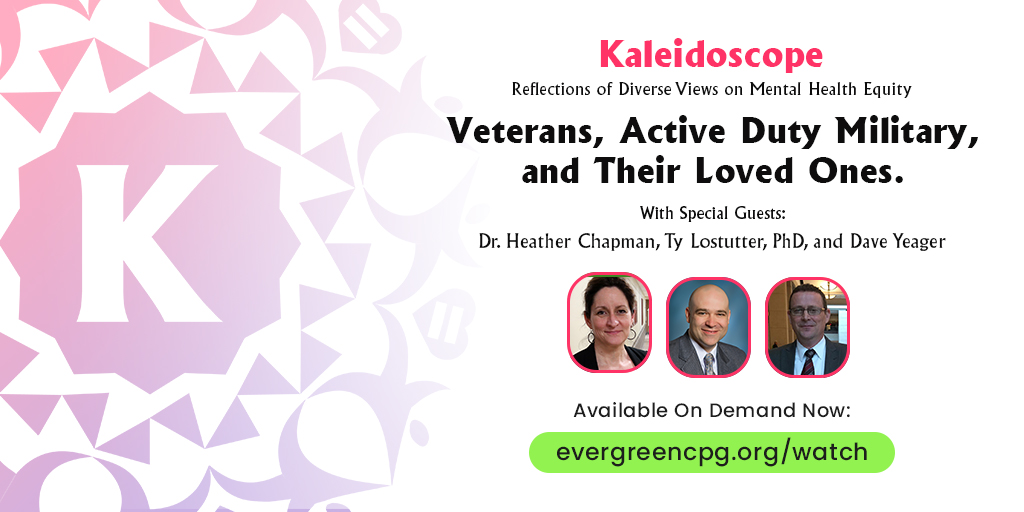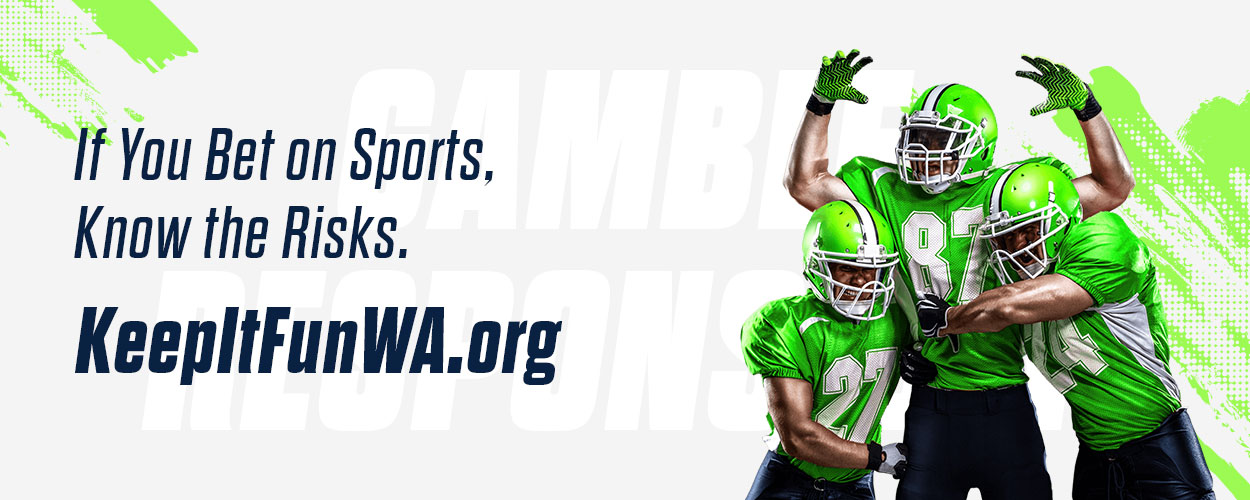| | | | | |  | | | | | | | | | | | | In the United States, we often take great pride in our cultural diversity as a strength – and rightly so. We also see, only too often, how cultural disparities – historically and currently, impact too many people adversely through poverty, the trauma of oppression and violence, and a longstanding history of discrimination, racism, and misunderstanding. The past few years of uncertainty, turbulence, and change continue to impact the ways we view and interact with people from cultures different than our own. What does this mean for Mental Health Equity and the work we all do to support people? | Culture plays a significant role in shaping how people think and feel about mental health in general and their own mental health in particular. It affects the ways we experience and express distress, fear, grief, shame, and trauma – and how, or if, we seek help. Every person’s experience in the journey to achieve and maintain mental health is different because of their unique beliefs, behaviors, and needs. It’s vital to respect and seek to understand each individual and the cultural and traditional experiences they have regarding mental health in order to create an inclusive safe space that supports people of all backgrounds while recognizing mental health as a public health and medical issue AND a spiritual and emotional issue. This includes not only race and ethnicity, but also age, socioeconomic status, sexual orientation, gender identity, physical disabilities and challenges, and so much more. It requires supporting individuals for the unique people they are while honoring and respecting the importance of community as a social and mental health driver. How do we chip away at obstacles and barriers with the ultimate goal of removing them altogether? How do we respect each person’s journey and help them feel safe, connected, heard, and supported? Here are some of the steps we are continually striving to take through our work at the Evergreen Council on Problem Gambling. - Be a catalyst for more intentional dialogue and discussion on culture and mental health equity.
- Provide reliable and accurate information on mental health disorders, treatment options, and resources in our communities.
- Offer resources and trainings that help break down language and other cultural barriers.
- Work with Community Advisors and Partners to tailor outreach and awareness education and resources for different communities, families, schools, places of worship, and any community programs and events.
In this issue of INSIGHTS, you’ll find information and introductions to some of the actions that reflect those steps. - Offering sessions on Human Trafficking and Gambling; Youth Gambling: New Insights and the Need for a Public Health Perspective; A Hero’s Welcome or a Hero’s Troubled Journey – Gambling and the Military, or many more at Focus on the Future 2023.
- Seeding innovation and supporting students, including underrepresented cultural groups, with Awards, Grants, and Scholarships to pursue education in the fields of psychology and behavioral/mental health sciences in Washington State Colleges and Universities.
- Partnering with Tribal Behavioral Health programs to support community awareness events on Responsible Gaming and Recovery during Problem Gambling Awareness Month.
- Providing information, resources, and support around the importance of Screening for Problem Gambling in all communities, and specific tools for Asian-American communities and Native American communities.
- Launching new outreach and awareness information and resources for Active-duty Military, Veterans, and their Families.
- Sharing resources, such as the National Latino Behavioral Health Association’s Spanish/Portuguese Problem Gambling Toolkit.
There’s so much more ECPG is offering – and even more we’d like to offer with your support, input, guidance, and partnership. Please don’t hesitate to contact any of our ECPG Staff members if you have ideas to share, questions to ask, or guidance to offer. We are stronger, and always more inclusive, when we work together. Maureen Greeley
Executive Director | | | | | | | | | |  | May 1-4, 2023
DoubleTree Suites by Hilton, Seattle Airport -- Southcenter | | ABOUT THE CONFERENCE Focus on the Future is the largest and longest-standing conference on problem gambling awareness in the Pacific Northwest. Launched in 2007, Focus on the Future brings together an incredible combination of compelling speakers – experts from across the nation – and opportunities to network and learn from colleagues in the field. It is a place where you can exchange ideas, experiences, and knowledge to become a collective voice in raising awareness and developing programs and services that have the greatest positive impact. FOCUS ON THE FUTURE CONFERENCE HIGHLIGHTS Focus on the Future 2023 will provide valuable insights on the tools and resources available for effective treatment, prevention, family and financial therapy, cultural issues, community engagement, healthcare and recovery services. DON’T MISS THESE PRESENTATIONS! Human Trafficking and Gambling – Panel presentation including Kyle Wood, Assistant Attorney General, Anti-Human-Trafficking and Anti-Child-Exploitation Coordinator, Washington State Office of the Attorney General Youth Gambling: New Insights and the Need for a Public Health Perspective – Jeffrey Derevensky, PhD Washington State Gambling Prevalence Study Highlights – Rachel Volberg, PhD, and Roxane Waldron, MPH A Hero’s Welcome or a Hero’s Troubled Journey – Gambling and the Military – Panel presentation including Heather Chapman, PhD, Director of the Gambling Treatment Program at the Cleveland VA Medical Center | | There’s so much more! Visit the Conference webpage to learn more about the conference and the special rates at the DoubleTree by Hilton, Seattle Airport – Southcenter, and to Register for Focus on the Future 2023 or fill in and return the PDF registration form. CONFERENCE REGISTRATION DEADLINE IS APRIL 25, 2022! | | | |  PROFESSIONAL DEVELOPMENT SCHOLARSHIPS AVAILABLE! A limited number of Full Scholarships are available for Washington State gambling treatment providers, students, professors, prevention specialists, and peer/recovery coaches. Scholarships include full registration fee, hotel stipend ($50 per night, up to three nights), and more. Scholarships are available in part through funding by The Washington State Health Care Authority – Division of Behavioral Health & Recovery, Problem Gambling Program. CONTINUING EDUCATION UNITS/HOURS/PROBLEM GAMBLING COUNSELOR CERTIFICATION The Evergreen Council on Problem Gambling is an Approved Provider of Continuing Education by The National Association for Addiction Professionals (NAADAC) and the International Gambling Counselor Certification Board (IGCCB). Our trainings have also been approved for continuing education by the Mental Health and Addictions Certification Board of Oregon (MHACBO), the American Academy of Health Care Providers in the Addictive Disorders (AAHCPAD); and the Canadian Problem Gambling Certification Board (CPGCB).  | | | | | | | | | The Evergreen Council on Problem Gambling (ECPG) seeks to seed innovation through supporting student research and education in the fields of psychology, cognitive or behavioral sciences to address social issues as they apply to Gambling and Gaming Disorders in the following priority areas: -
Understanding the connections between addictive behaviors and health -
Understanding and eliminating stigma/intersectional stigmas and prejudice of Gambling and Gaming Disorders as Public Health issues (e.g., culture, race, gender, sexual orientation, religious beliefs, age, disability, and socioeconomic status) -
Special concerns of populations that have historically been underrepresented in research on Gambling and Gaming Disorders -
Understanding connections between Gambling Disorder and Suicide Funding and Support is Available in Four Categories: -
Dissertation Research Grants -
Graduate-Level Academic Thesis Awards -
Advanced Undergraduate (Junior/Senior) Academic Scholarships -
Early Undergraduate (Freshman/Sophomore) Academic Scholarships Awards range from $2,000 to $3,500 per student. Up to three awards in each category are available for the Grant Funding Cycle Deadline of April 1, 2023. Visit our Student Research Grants and Scholarships page for more detailed application information and eligibility requirements. | | | | | | | | | We are “Celebrating 20 Years” with #PGAM2023! Help us spread awareness and bring help and hope to individuals, families, and communities affected by problem gambling. Each year in March, the Evergreen Council on Problem Gambling, National Council on Problem Gambling, other NCPG affiliates, and our community partners highlight programs and services of note during Problem Gambling Awareness Month (#PGAM). | | | | Are you hosting a Gambling Disorder Screening Day location or other PGAM event? Let us help you get the word out. Submit the details and we will add it to the Community Event calendar. | | | | New for 2023! On Demand Now! Screening for Problem Gambling in Asian Communities Join us for a discussion on the importance of screening for Problem Gambling and how to approach the topic in Asian-American communities with guests Harumi Hashimoto, LMHC, ICGC-II, SUDP, Clinical Director of Recovery Services at the Asian Counseling and Referral Service and Frank Song, MS, Graduate Student of Clinical Psychology at the University of Washington. Together we’ll explore Gambling Disorder screenings, support, and services on demand. | | | | | | Governor’s Proclamation: Washington state Governor, Jay Inslee, proclaimed March 2023 as Washington Problem Gambling Awareness Month. View the proclamation. | | | | | | | | When most people think of those who serve in our Military – active-duty personnel and veterans -- terms such as Honor, Strength, and Courage come to mind. What happens when a servicemember needs help for trauma-related issues, addiction, or other mental health concerns? Stigma, lack of access to effective mental health services, and fear of consequences all contribute to significantly low rates for seeking help. Retired and active-duty service members need accessible and effective mental health services. Their lives may depend upon it. | | | | ECPG launched a new Military awareness and outreach campaign in February with a special Kaleidoscope Live-Streaming Program on Fighting for Mental Health Services for Those Who Serve – with special emphasis and awareness around gambling in the military. The campaign continues during Problem Gambling Awareness Month with support of the Washington State Health Care Authority – Division of Behavioral Health & Recovery Problem Gambling Program. ECPG will continue expanding on these efforts throughout the year to explore and address the consequences and unintended consequences of military service on mental health equity, risk and resilience factors, and resources for support. Did you know? -
1 in 50 veterans and active-duty military personnel experience a significant gambling problem. -
Active-duty personnel and veterans are twice as likely to have a gambling problem than the general population. -
The U.S. military brings in a staggering $100 million dollars annually from slot machines on overseas military bases. Sources: Businesswire, Military Times, OPB Visit our new site at MilitaryGamblingSupport.com to learn more and to find resources for help and support. | |  | | | | | More PGAM info and Resources: | | | | | |  | | | | | Love the Game – Keep it Fun! Let’s face it – sports fans are enthusiastic. Sports are meant to be fun entertainment – but sometimes, even the greatest fan can stretch fun to its limits. The same can be true for sports betting. Betting can be a fun way of adding some extra excitement to a game, but it’s not without risk. The Evergreen Council on Problem Gambling and several partners are developing a comprehensive, integrated awareness and media campaign around how to make healthy choices if you choose to participate in sports betting, such as setting limits, knowing when to take a time-out, and where to find help and support if gambling problems sideline the fun. We want to provide Washington state fans and residents the knowledge, tools, and resources to Keep it Fun – and stay healthy! Our emphasis is on: The first elements of the Washington awareness campaign include radio spots across the state and the launch of our new microsite KeepItFunWA.org. Check it out! In Fall 2022, we launched television spots to support the campaign, as well as two segments on the KING5 New Day Northwest Hawk Zone show. The Washington awareness campaign is designed to be dynamic, engaging, fun, memorable, and positive to remind Washingtonians: -
Sports should be fun -
Sports Betting should also be fun entertainment -
Keep the FUN in the Game and make Healthy – Responsible – Choices -
If the fun fades, Help is available – It’s Okay to Ask for Help | | Meet our Mascot – Callie Throughout the Sports Betting Responsible Gambling Awareness Campaign, there are many messages and many types of Sports Bettors who are introduced. One Sports Fan who always knows how to play the game – just for the fun of it – is Callie, our Golden Mascot. Callie will continue to be a part of our campaign, helping to share the message to Keep it Fun – Washington! If you choose to bet on sports (or any gambling) – bet responsibly! | | | | | | | | | | Gaming Disorder Prevention and Treatment Training This Foundations in Gaming Disorder – Core training is now a 30 CE-hour course, offered 100% online and self-directed. It is designed to provide the critical knowledge needed to address at-risk gaming and gaming disorder, from prevention through treatment and recovery. Prevention specialists will be better equipped to understand risk and protective factors and implement science-based prevention strategies. Clinicians will be better equipped to screen, identify, and treat gaming disorder. All will understand the impacts on unique populations and critical connections of gaming disorder with other behavioral health and addictions issues. This opportunity is coming on behalf of two nationally respected public health non-profit organizations – the Evergreen Council on Problem Gambling and the Massachusetts Council on Gaming and Health. | | | | Training topic highlights! This training even includes sessions on “Gaming Around the Globe” with Dr. Daria Kuss and “Evidence-Based, Trauma-Informed, and Culturally Safe Client Care” with Tracy Tsui. | | | | | | | | | | | | | Connections: Healthy Gambling and Gaming Podcast – latest episodes | | | | | | Latest free educational videos on YouTube: | | | | | | | | | | | | | | | | | | RG STAR is a training like none other, based on the RG Ambassador model originating from Caesar’s nearly 30 years ago, and now a recognized industry standard around the globe. RG STAR offers a tiered training model for all New-Hire employees, Frontline employees, Managers/Supervisors, and Ambassadors. The training model ensures that the facilities’ whole team is fully trained and competent in RG policies, best-practices, interventions, and a structure for reporting concerns and making resources available to help their guests keep gambling fun and game responsibly, or find help if needed. The RG Certification process requires a full review of all RG policies and procedures including self-exclusion, employee gaming and help, preventing underage gaming, responsible gaming messaging and marketing, provision of the helpline and other help resources, participation in problem gambling awareness, and more. In Washington state, several gaming industry members have already started bringing RG STAR training into their facilities, some have even completed the full Certification process to become RG Certified operators and are Organizational Members of the Evergreen Council on Problem Gambling.  Congratulations and thank you to our industry partners for your investment and commitment to Responsible Gaming initiatives: | | | | | | | | | ECPG/NCPG JOINT MEMBERSHIP Not yet a member? SIGN UP HERE Take advantage of our ECPG/NCPG Joint Membership – join both and save! As an ECPG member, you’ll receive member discounted rates on all of our trainings and conferences – all of which offer Continuing Education Units from many associations and certification boards. | | | | | | | | Evergreen Council on Problem Gambling
1821 4th Ave. E, | Olympia, Washington 98506
360-352-6133 | info@evergreencpg.org | | | | | | | | | |